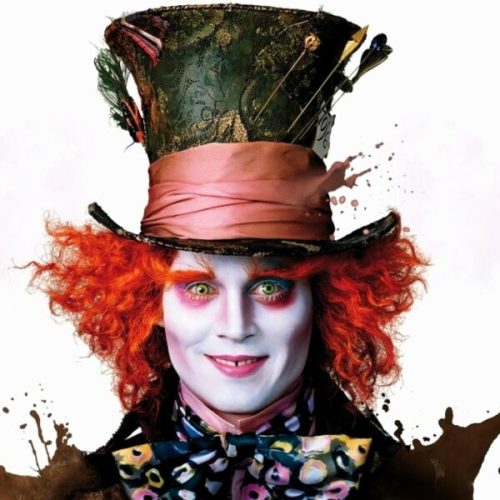
About this Host
The Hatter is a fictional character in Lewis Carroll‘s 1865 book Alice’s Adventures in Wonderland and its 1871 sequel Through the Looking-Glass. He is very often referred to as The Mad Hatter, though this term was never used by Carroll. The phrase “mad as a hatter” pre-dates Carroll’s works. The Hatter and the March Hare are referred to as “both mad” by the Cheshire Cat, in Alice’s Adventures in Wonderland in the sixth chapter titled “Pig and Pepper”.
The Hatter character, alongside all the other fictional beings, first appears in Lewis Carroll‘s 1865 novel Alice’s Adventures in Wonderland. In “Chapter Seven – A Mad Tea-Party”, while exploring Wonderland, Alice comes across the Hatter having tea with the March Hare and the Dormouse. The Hatter explains to Alice that they are always having tea because when he tried to sing for the foul-tempered Queen of Hearts, she sentenced him to death for “murdering the time”, but he escapes decapitation. In retaliation, Time (referred to as “he” by the Hatter) halts himself in respect to the Hatter, keeping him stuck at 6:00 pm (or 18:00) forever.
When Alice arrives at the tea party, the Hatter is characterised by switching places on the table at any given time, making short, personal remarks, asking unanswerable riddles, and reciting nonsensical poetry, all of which eventually drives Alice away. The Hatter appears again in “Chapter Eleven – Who Stole the Tarts?”, as a witness at the Knave of Hearts‘ trial, where the Queen appears to recognise him as the singer she sentenced to death, and the King of Hearts also cautions him not to be nervous or he will have him “executed on the spot”.
The character also appears briefly in Carroll’s 1871 Through the Looking-Glass, the sequel to Alice’s Adventures in Wonderland. Under the name of “Hatta,” the Hatter was in trouble with the law once again. He was, however, not necessarily guilty, as the White Queen explained that subjects were often punished before they commit a crime, rather than after, and sometimes they did not even commit one at all. He was also mentioned as one of the White King’s messengers along with March Hare, who went under the name of “Haigha.” Sir John Tenniel‘s illustration depicts Hatta as sipping from a teacup as he did in the original novel. Alice does not comment on whether Hatta is the Hatter of her earlier dream.









